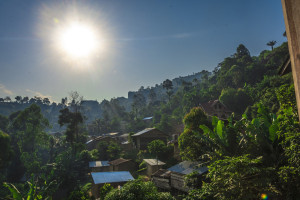
Kinsasha/Geneva: Land disputes among different communities have led to inter-communal violence, which in turn has fueled the emergence of armed groups in Masisi and Lubero territories in the Democratic Republic of Congo’s northeastern province of North Kivu.
These groups have been able to take almost total control of Masisi and Lubero, where the State’s presence is negligible and where few security forces are deployed.
The number of violations and abuses reported in Masisi and Lubero has increased steadily since 2015. Currently, more than half of the human rights violations and abuses recorded in North Kivu province take place in these two territories.
According to information recorded by the United Nations Joint Human Rights Office in DRC (UNJHRO) and included in a report published today, armed groups perpetrated at least 2,359 human rights abuses and violations of international humanitarian law in Masisi and Lubero in the first 10 months of the year, up from the 801 recorded in 2020 and 756 in 2019. The 2,359 abuses recorded in 2021 included, among others, 484 people summarily executed, 1,455 injured after being attacked and 354 victims of sexual violence.
From January to October, the Joint Human Rights Office also recorded 966 violations of human rights and international humanitarian law by security forces in Masisi and Lubero, a significant increase from 387 registered in 2020 and 183 in 2019. The violations recorded this year included 111 civilians victims of extrajudicial killings, 542 people injured and 58 victims of sexual violence.
“We call on the authorities to establish prompt, impartial, independent and effective investigations into all human rights violations and abuses with a view to hold those responsible accountable. We also urge authorities to ensure that security personnel deployed to the two territories to confront the armed groups are properly trained to prevent human rights violations from occurring,” Liz Throssell, Spokesperson for the UN High Commissioner for Human Rights, stated today in Geneva.
Demobilization, disarmament and insertion programmes to support the integration of fighters into the communities should be fully and rapidly implemented, Throssel said, adding that these programmes should be complementary to the transitional justice mechanisms that guarantee the right to truth, justice and reparations for victims.
The UN Human Rights further demanded that in parallel, authorities should establish civil administration structures to offer essential services to the local population and so prevent armed groups from filling the vacuum currently left by the State.
– global bihari bureau





